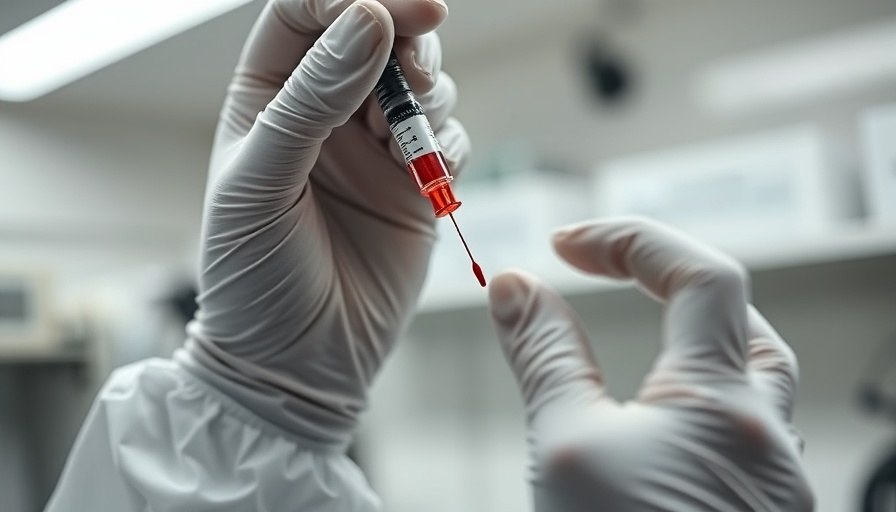
Revolutionizing Diagnostics: A New Age of At-Home Testing
In recent years, the reliance on at-home testing kits has surged, especially during the COVID-19 pandemic. These tests provide a convenient way for individuals to diagnose conditions ranging from common illnesses to more serious diseases. Yet, they have traditionally faced criticism for lacking the sensitivity of tests conducted in clinical settings. Now, researchers at UC Berkeley have developed a groundbreaking biosensing technology that enhances at-home testing sensitivity, making it a promising tool for public health.
Understanding the Coffee-Ring Effect
The innovative approach leverages a natural phenomenon known as the coffee-ring effect. As any liquid evaporates, particles suspended within the liquid tend to migrate toward the droplet's edge, forming a distinct circular pattern. Researchers have harnessed this effect alongside plasmonic nanoparticles—tiny particles that enhance detection precision through light patterns. This synergy leads to rapid and accurate biomarker identification for a variety of conditions, including COVID-19 and prostate cancer.
Rapid, Affordable Diagnostic Innovations
The prototype created by the team at UC Berkeley incorporates a user-friendly design featuring a 3D-printed scaffold for droplet placement and a small electric heater to expedite evaporation. This setup aims to provide individuals with a highly accurate diagnosis within minutes, an essential advantage for timely medical intervention. According to Kamyar Behrouzi, the lead researcher, this technique could facilitate affordable diagnostics, particularly in low-resource settings, where access to traditional healthcare is limited.
Pushing the Boundaries: Wider Implications
The potential applications of this technology extend beyond COVID-19 testing. Researchers suggest that the same methodology could be applied to detect other serious conditions such as sepsis and various types of cancer. As healthcare increasingly shifts towards decentralized models, this diagnostic tool could empower individuals to take proactive steps in managing their health from the comfort of home.
The Future of Health Tech: Accessibility and Precision
The implications of this research are vast. With healthcare increasingly facing challenges such as overcrowded facilities and rising costs, at-home diagnostics represent a significant shift towards accessibility and precision in healthcare delivery. The findings, conveyed in a recent study published in Nature Communications, highlight the urgent need for more effective and rapid diagnostic tools that can cater to global healthcare demands.
Conclusion: A Call for Engagement in Health Innovations
As we stand on the brink of a health tech revolution, it is essential for individuals to stay informed and engaged with these advancements. Understanding innovations in at-home testing technologies like those from UC Berkeley not only enhances personal health management but also contributes to broader public health strategies. Enthusiasts and professionals alike should advocate for and support research that promises to make healthcare more accessible and effective for all.
 Add Row
Add Row  Add
Add 




 Add Row
Add Row  Add
Add 
Write A Comment